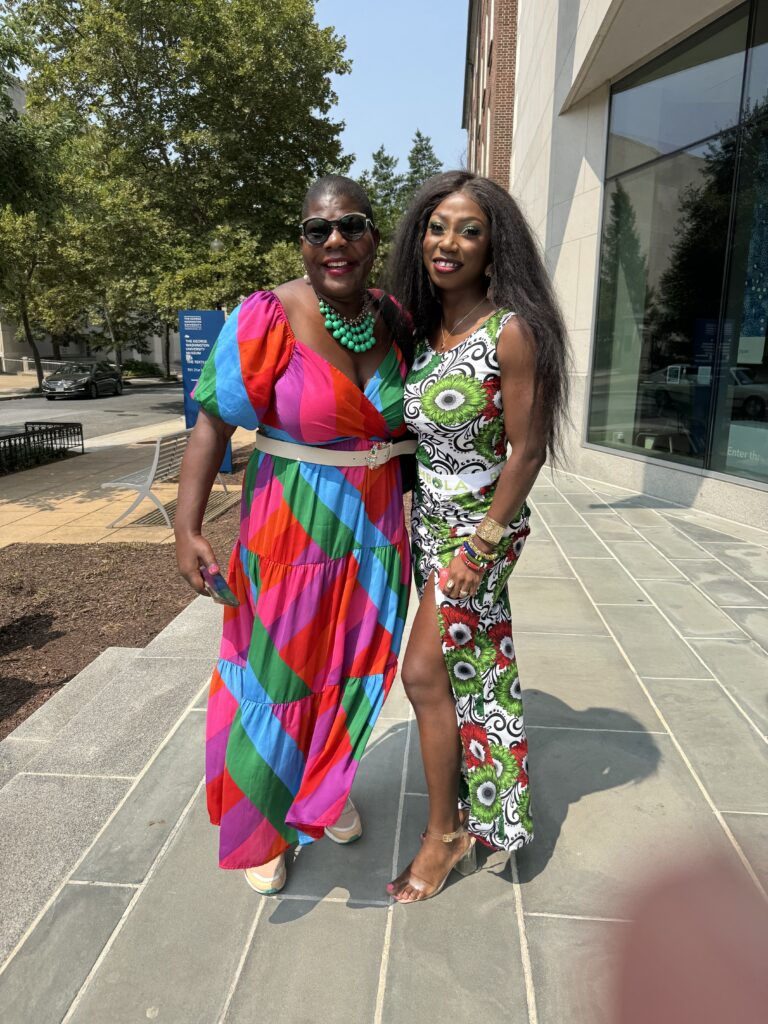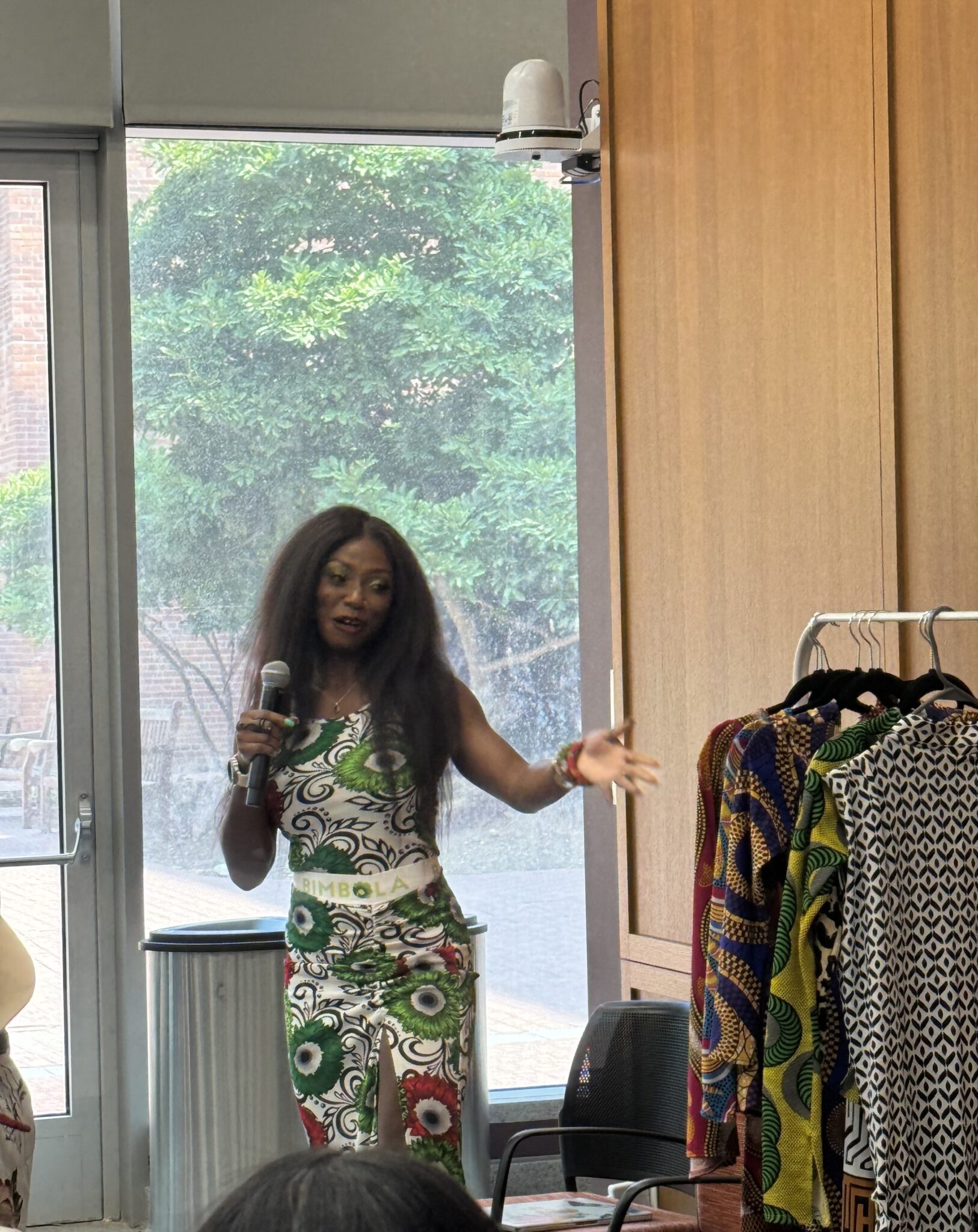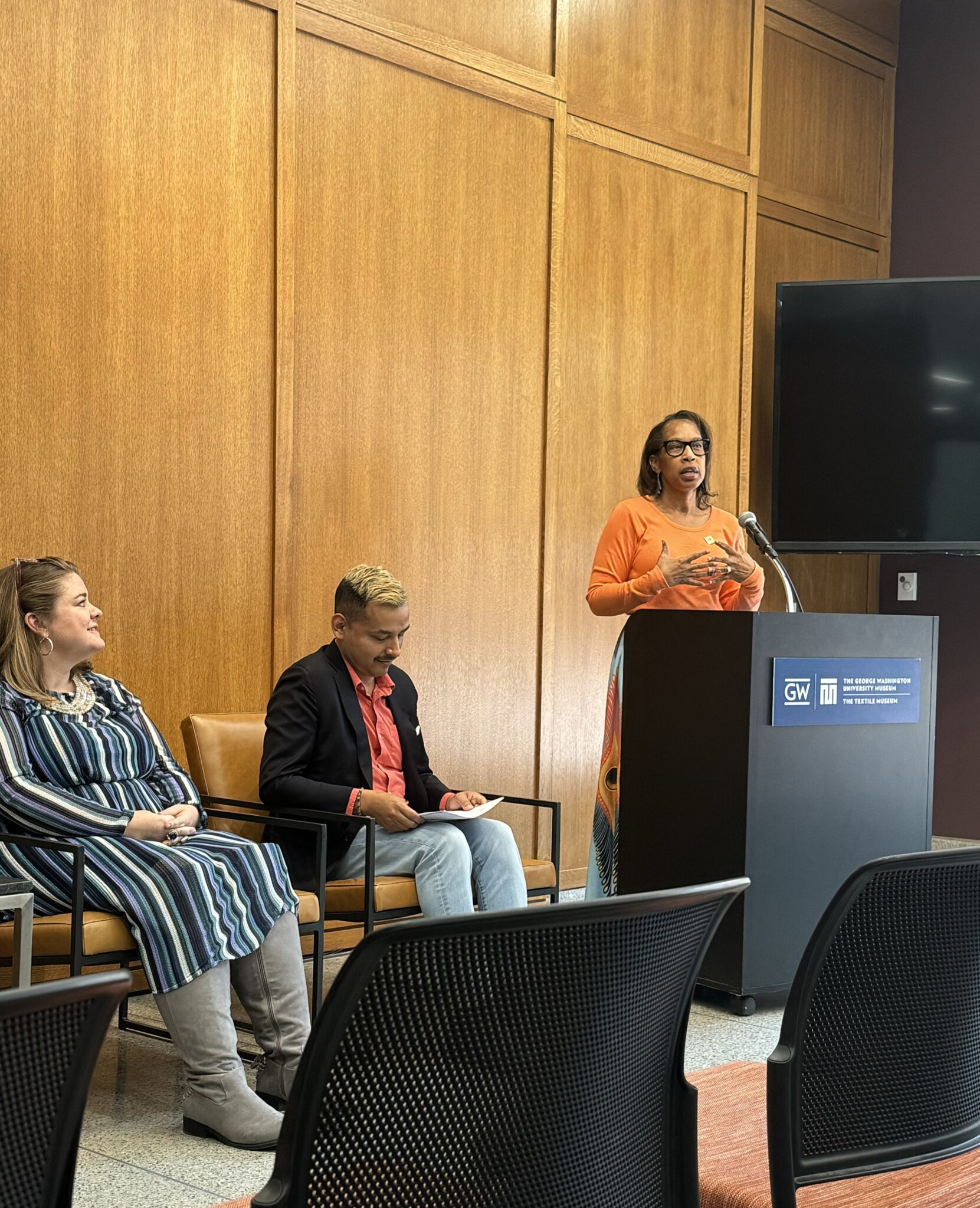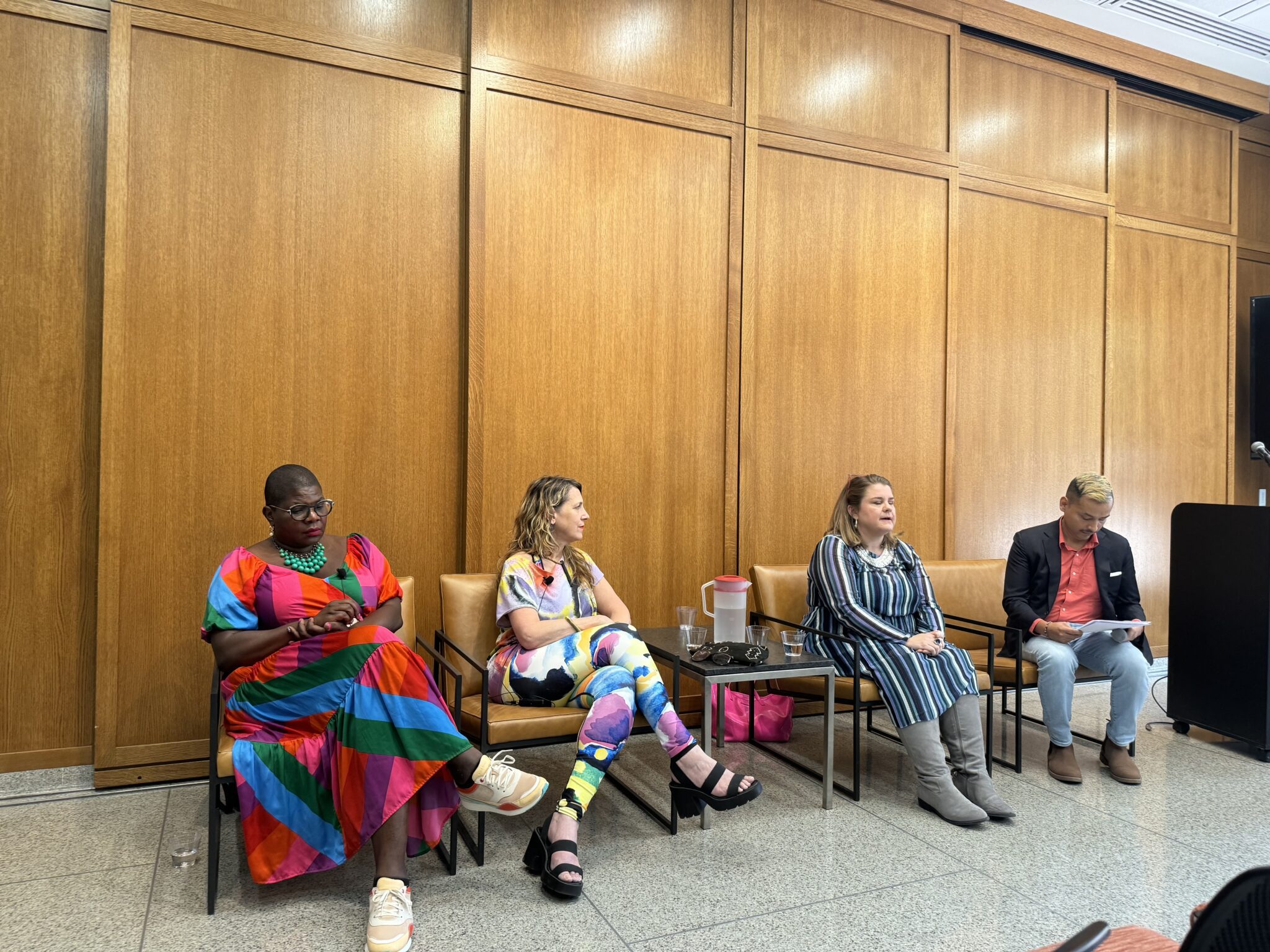DSLBD’s ReFashion Launches at GWU’s Textile Museum
By • August 26, 2024 0 1718

The D.C. Department of Small and Local Business Development (DSLBD) celebrated the launch of the ReFashion Initiative at the George Washington University Textile Museum.
DSLBD Director Rosemary Suggs-Evans said she was excited to introduce the initiative (currently in beta) to support the growth of the fashion economy in Washington, D.C.

Photo by Allyson Burkhardt.
“ReFashion provides agency for community building, resource and education sharing and networking to D.C.-based fashion businesses that are bringing viable solutions through circular and sustainable business models,” she added. “It focuses on four fashion sustainability areas—technological innovation, re-commerce, textile alternatives and fashion empowerment—with the intent to reduce the fashion industry’s environmental impact locally and beyond the District.”

Photo by Allyson Burkhardt.
The new initiative, led by DSLBD’s Innovation and Equitable division (Inno.ED) and its Project Coordinator Javier Sanchez, collaborates with industry experts to provide technical assistance activations and trainings to support District-based fashion in the challenging business landscape.
The GWU Textile Museum was a companionable host as it enters its 100th year in dedication to the cultural importance of the world’s textiles and continues to engage in community through the availability of resources and programming.
Suggs-Evans welcomed the audience of D.C.-based fashion businesses and entrepreneurs and said she was committed “to the success of their dreams that have been turned into businesses.”
The program discussion—“Balancing Profitability and Responsibility: Navigating the Complexities of Sustainable Fashion”—featured panelists Fia Thomas, owner and operator of Fia’s Fabulous Finds, Ashley Kurth-Reinhart, founder and executive director of The ReFashion Show and Remake Community Organizer for the Washington D.C. Hub and Lola Lombard, creative director and designer of Lola Lombard Wearable Paintings.
The panelists shared insights on how the principals of a circular economy may be applied to fashion. The consensus is that profitability is hard for their businesses with the added difficulty to gain visibility in Washington. Government supports are welcomed, but creative thinking in business and in design is required to attain opportunities for success.

Photo by Allyson Burkhardt.
The audience was then treated to a designer showcase where Mary Abimbola of Bimbola Designs, Brian Americus of Brian Americus and Bria Edwards and Omari Jesse of Cuuurryout presented their fashions and stories.
A private tour of the museum was then offered to the guests concluding the event.
For more information on ReFashion, click here.

